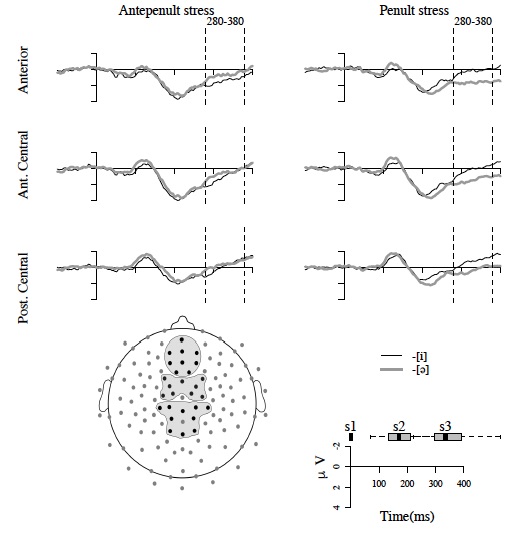Effects of probabilistic phonology on the perception of words and nonwords
Abstract
Although listeners have knowledge about both categorical and probabilistic phonological patterns, it is not clear if knowledge of probabilistic patterns affects speech processing. One such pattern in English is that words ending in /i/ (e.g., rémedy) are more likely to have antepenultimate stress than penultimate stress (e.g., spaghétti). In the current study, participants extended this trend to ratings of novel words (e.g., bakati). Further, ERPs revealed that real words that violate this trend elicit an early negativity 280-380 ms after onset compared to words that observe this trend. These results indicate that probabilistic phonology interacts with lexical access. More specifcally, they suggest that extra processing power is needed to recognize the stress pattern of trend-violating words because of competition between the expectations of the phonological grammar and lexical encoding of trend-violating patterns.
Documents:
Preprint for paper in Language, Cognition and Neuroscience, 33(2):148-164 .

Early negativity to exceptional words relative to pattern-observing words.